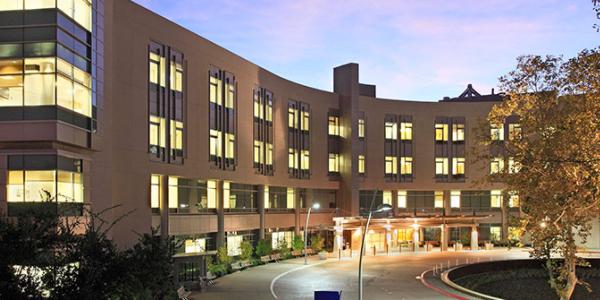
Mountain View, CA - August 27, 2009 - For anyone struggling with an eating disorder, El Camino Hospital's recently launched evening intensive outpatient program may be good news. The innovative new program allows patients to get the help they need and still maintain work and family commitments.
"One of the key obstacles to treatment for an eating disorder is the enormous investment of time required and the accompanying disruption to the patient's daily life," said Carol Dietrich, program director. Not only do day programs require patients to take a leave of absence from their work and school, but insurance plans typically provide very limited coverage, so cost becomes a barrier. El Camino Hospital's evening program helps solve both these problems."
Eating disorders (anorexia nervosa) have the highest mortality rate of any mental illness, yet only about one in ten persons affected will seek treatment. A study by the National Association of Anorexia Nervosa and Associated Disorders reported that 5-10% of anorexics die within ten years after exhibiting symptoms, and only 40% will ever fully recover.
"Many people don't get the intensity or duration of treatment necessary to overcome their illness," said Dietrich. "When insurance coverage runs out they often are sent home or drop out of treatment weeks earlier than is recommended due to costs. With shorter hours, our evening outpatient program is more affordable--yet it includes all the key components for successful recovery."
El Camino Hospital's evening program runs from 5:30 p.m. to 9 p.m., allowing many busy moms, fulltime students and workers to participate. In addition to being less disruptive and costly, the evening program allows many patients to maintain more privacy, because patients can keep their daytime schedule of work, family or school.
Although patients spend fewer hours in the evening than in the day program, they have access to the same multidisciplinary staff and treatment components, including individual case management; psychiatric evaluation, medication consultation and management; nutrition assessment, counseling and meal planning with registered dieticians; meal support (dinner and a snack); group and multi-family group psychotherapy; and expressive arts therapies.
The three-step program includes eliminating disordered eating behaviors and reestablishing more normal eating habits, addressing core issues of self esteem and personal identity, and finally providing individualized discharge plans that help patients maintain a healthy lifestyle. The first step focuses on what--and why--patients eat.
"You can't imagine how out of touch I was with pleasurable eating," said Elizabeth, a young woman who recently successfully completed the El Camino Hospital evening program. "I thought only skinny people got to eat food they enjoyed. The program staff helped me rediscover what I love to eat--and also why I thought I didn't deserve to eat it. Suddenly I realized that foods I had binged on countless times didn't actually taste that good. I was giving food all of the power in my life. I finally learned to eat what I want when I'm hungry without judgment--and stop when I'm full. It sounds simple, but it wasn't."
When the focus shifts to core issues of self-esteem and personal identity, patients get help identifying what really drives their self-destructive actions. "Many patients binge and purge every time they feel hurt or uncomfortable," said Dr. Katherine Taylor, medical director. "We help them recognize the feelings that are fueling their eating and then refocus that energy. It's important that they know they don't have be held hostage to their emotions."
Eating disorders often involve complex family relationships that become a cycle of blame, shame and guilt. The patient's family may need to participate in therapy, so multi-family group therapy is an important component of treatment. The goal is to move the focus away from blame and towards compassion and understanding. "No matter what they may be reacting to," said Dr. Taylor, "the eating disorder is still the patient's responsibility. If they can own it, they can conquer it."
"I've done inpatient programs in the past," Elizabeth said, "and it was almost like being on vacation. Someone is watching your every move, so you don't even have to think about what to do--but that isn't real life. Real life is work and school and family and stress. El Camino Hospital's evening program is not about escaping your life in order to get better. It challenged me and forced me to confront the everyday issues in my life that made me act out. They showed me that I could survive life without my eating disorder."
The program takes place at El Camino Hospital's Behavioral Health Services, at 2500 Grant Road in Mountain View. For more information, call 650-988-8489.
About El Camino Hospital
El Camino Hospital, ranked among the top five percent of hospitals nationwide for clinical excellence by HealthGrades, is an acute care, not-for profit and locally governed organization with campuses in Mountain View and Los Gatos, Calif. Key medical specialty focuses include cancer care, heart & vascular, neuroscience, genomic medicine, orthopedic & spine and women’s health.
El Camino Hospital has delivered the highest level of medical services to the communities of Silicon Valley for more than four decades. The hospital is also recognized as a national leader in the use of health information technology to promote patient safety, including computerized order entry, electronic medical records and wireless communications.